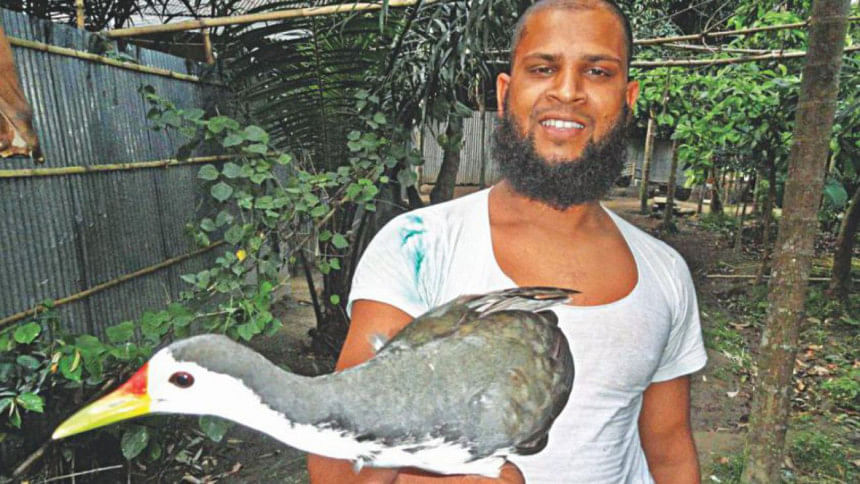The Other News

What else is going on these days besides people getting bumped off or robbed of their dignity?
If it's international news that floats your boat: Venezuela has reduced the workweek to two days for government employees amid a crippling recession that has led to food shortages, soaring prices, riots, looting and street justice.
How did a country with the world's largest oil reserve get here?
Or sports news: Usain Bolt has opened his 2016 season with a 100-metre victory in 10.05 seconds. After the race, Bolt, the fastest man ever timed, said he didn't feel smooth. He is, however, determined to defend his 100m, 200m and 4×100 Olympic crowns in Brazil, seeking an unprecedented third gold medal in a row in all three events in what he has said will be his final Olympic.
Will any human ever run 100m in under 9 seconds?
Or news on the latest tech: Researchers from MIT, the University of Sheffield and the Tokyo Institute of Technology have developed a tiny 'origami robot' which can be swallowed like a capsule and used to remove foreign objects from the stomach.
When will engineers design a robot capable of eliminating "foreign objects" from human brains?
Or business: Only about 56.6 percent of the recommended remediation works have been completed by the member garment factories of Accord, a platform of 210 mostly Europe-based retailers. Of the 1,452 factories reviewed, 7 factories got pass mark, 57 are close to completing their corrective action plans while 1,388 factories are lagging behind. Fire and electrical faults were the most common.
No comment here.
Read all about it. Watch. Listen. Sleep—if she comes to you.
Now let's consider two stories that broke during the last two weeks but didn't make headlines or prime time TV. A young man named Abdul Jabbar from Lalmonirhat bought a rare bird from a poacher for Tk. 400 and released it immediately. For Jabbar, it wasn't a rare act of kindness. The newspaper hawker, who makes only Tk. 300 a day, often buys exotic birds from poachers to free them.
And then there is Bapurao Tajne from a drought-hit village in Maharashtra, India. When his wife was refused to draw water from a well because they belong to "lower caste", Bapurao took it upon himself to build his own. There was no hydrological study to select the spot, he went by instinct. His wife ridiculed him but after 40 days of backbreaking work, Bapurao hit water. Now the entire community has access to clean water.
It's nice to catch such glimpses of human sublimity slipping through the cracks of hate and bloodshed. This is not to suggest that news of death and killings and accidents and wars are not important, but only to remind oneself that the news is selective and often parochial. And parochialism in the media drives the common practice that a great number of people have to die to make a story front page or prime time worthy, as compared with relatively minor incidents like someone digging a well for his community or someone saving birds from poachers. One wonders what constitutes news at all.
Which was of greater significance in the Second World War, the war itself or the widespread use of penicillin? And while we are at it, what matters most in a war—victory or courage or the young dying? To make matters even murkier think about Anne Frank's diary, which documents that human love could not have existed without human hate. Who matters more to the world after the war, Anne Frank or Hitler? It is said that war is short and art is long, but there is no way to prove that.
Many years ago, Roger Rosenblatt, author and Harvard Professor, posed the question: What matters most in a piece about journalistic priorities? There is no easy way to answer this. To pin the question of significance on the emotions, on the elevated spirit, is merely to make one kind of choice.
Meanwhile, it is in the other news that life attempts to rediscover, rearrange and prioritise itself—in repose, at rest, until we get it right.
The writer is a member of the editorial team at The Daily Star.

 For all latest news, follow The Daily Star's Google News channel.
For all latest news, follow The Daily Star's Google News channel. 



Comments